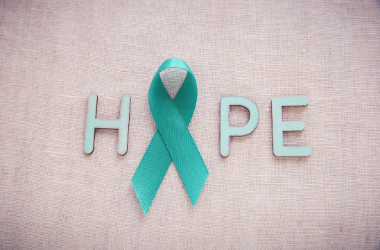Blog
Ovarian cancer is not a common cancer, but it is a life threatening one. In the United States, one in 78 women will be diagnosed with ovarian cancer, and nearly 80% of them will already be in the late stages, when it is more challenging to treat.
September is Ovarian Cancer Month, which is focused on spreading awareness of this disease. The symptoms for ovarian cancer may be vague and similar to other, more benign conditions. If you have two or more of the following symptoms, it is important that you see  your gynecologist:
your gynecologist:
- Abdominal or back pain
- Abnormal vaginal bleeding or discharge
- Bloating
- Feeling full too quickly or difficulty eating
- More frequent or urgent need to urinate and/or constipation
- Pelvic pain or pressure
There is no early detection for ovarian cancer. According to Amos Cutler, MD, Chair, Department of OB/GYN and member of Saratoga Hospital Medical Group – OB/GYN, it is one of those cancers that is difficult to diagnose at an early stage.
“The age group most likely to be diagnosed are women over the age of 55, who we don’t see as often as women of childbearing age,” Dr. Cutler says. “It is an aggressive cancer. We can see someone and everything is fine, then six months later there is a big mass. There’s very little warning. The symptoms of ovarian cancer can often be associated with common benign conditions such as irritable bowel syndrome or a urinary tract infection. That is why it is important for women to be aware of the symptoms of ovarian cancer and be evaluated if they are experiencing them.”
A diagnosis of ovarian cancer is confirmed through an ultrasound or CT scan. If you have a family history of ovarian cancer, especially if the family member is your mother or sister, a genetic study is recommended to further assess risk. If there is a family history of breast cancer, it can be associated with an increased risk for ovarian cancer.
“Genetic testing is a simple blood draw that can be done here at our facility or any hospital lab,” Dr. Cutler says. “This has been an exciting option that has risen over the last decade. Identifying women at risk can save lives. If they have the genetic markers, we can increase screening frequency and have a better chance at catching ovarian cancer earlier.”
The key is testing for the right markers, Dr. Cutler adds, so it is important not to rely on consumer genetic testing that isn’t directed by your physician, otherwise a marker could get missed. Patients will be given the option to discuss their results with a genetic counselor, as well.
“The good news is, with the right data, there are better options for women today,” Dr. Cutler says, “especially if they know and pay attention to ovarian cancer symptoms.”
Learn more about ovarian and other gynecological cancers on this page on the Centers for Disease Control website. You can make an appointment at Saratoga OB/GYN by calling 518-587-2400. For more information about obstetric and gynecological care, visit SaratogaHospital.org

